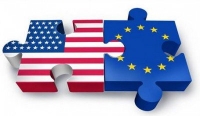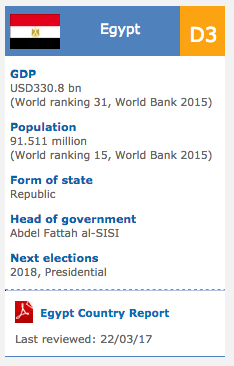World: Comcast’s $45bn bid for TWC runs into new hurdle
2015/01/31

The change means the number of US families who have no choice in their broadband services provider will climb from 19 % to additional than half. In most cases, that provider will be one of the large cable companies, which have fiercely resisted the change.
The National Cable & Telecommunications Association, an industry lobby group, said the decision was “arbitrary” and “a clear effort to justify and expand the bounds of the FCC’s own authority”.
The National Cable & Telecommunications Association, an industry lobby group, said the decision was “arbitrary” and “a clear effort to justify and expand the bounds of the FCC’s own authority”.
The FCC split along party lines, with the three Democrats saying the proliferation of mobile devices, video streaming and the “internet of things” meant consumers needed superior internet speeds and Republicans saying 10Mb download speeds were sufficient.
The Department of Justice must decide whether the Comcast-TWC transaction is anti-competitive while the FCC will policy on whether it is in the public interest. Both agencies are taking longer than expected to assess the transaction. Comcast had hoped to complete the transaction by the end of last year, but yesterday it extended its merger agreement with TWC by six months to August 12.
- Related Articles

Climate change laws around the world
2017/05/14 There has been a 20-fold increase in the number of global climate change laws since 1997, according to the most comprehensive database of relevant policy and legislation. The database, produced by the Grantham Research Institute on Climate Change and the Environment and the Sabin Center on Climate Change Law, includes more than 1,200 relevant policies across 164 countries, which account for 95% of global greenhouse gas emissions.
Towards NAFTA-EU Economic Integration?
2016/11/23 The ratification of the CETA agreement is imminent, with far-reaching economic and social implications. France’s Prime Minister Manuel Valls is currently in Canada for meetings with Prime Minister Justin Trudeau. CETA is the object of protests in both Canada and the EU. It was also the object of a legal procedure in Germany. The logic of the agreement must be understood. It constitutes the first step towards the integration of NAFTA and the EU. This integration would create an North Atlantic political entity broadly coinciding with NATO.
From east Africa to India, finance for off-grid clean energy projects offers a wealth of benefits beyond tackling climate change
2016/07/23 Investing in a large-scale wind farm is a better guarantee of profits than multiple, small, off-grid renewables projects but without the latter, argues a recent statement, the sustainable development goal of low-carbon energy access for all will at no time be met. It is estimated (pdf) close to $50bn a year is needed to achieve universal access to electricity and clean cooking facilities by 2030. From presently on traditional forms of climate finance are not working. The result, according to the statement (pdf) from the International Institute for Environment and Improvment(IIED), is major bottlenecks in funding for a lot of small-scale renewable energy services such as solar home systems, mini-grids and clean cooking facilities.
Understanding and Leveraging the Trends that will Change How Business is Conducted
2016/06/11 Remarkably successful leadership requires knowledge, understanding and insight across a landscape that is both wide and deep. Management practices, technology and physical workspaces have all become increasingly interconnected, enabling leaders to build a high performing work environment unlike anything we’ve seen before. While the dynamics have become more complex, the potential to positively impact the performance of individuals, organizations and communities may offer even greater rewards than previously expected.
Minimal Conditions For The Survival Of The Euro
2016/03/20 The Eurozone crisis has shown that monetary union entails additional than just sharing monetary policies. This column, initial published on 12 February 2016, identifies four minimal conditions for solidifying the monetary union. In the case of fiscal policy, this means a decentralised solution. In the case of financial supervision and monetary policy, centralisation is unambiguously the appropriate response. In the case of a fourth condition, deficit restructuring, either approach is possible, but the authors prefer a solution that involves centrally restructuring debts while allocating costs at national level.
- World News
-
- AFGHANISTAN: UNWTO: International tourism – strongest half-year results since 2010
- WORLD: How fair is our food? Big companies take reins on sourcing schemes
- CHINA: UNDP chief: BRICS sends promising signal
- WORLD: Ethical Raw Material Sourcing Muddled As Food Firms Set Own Rules
- CHINA: BRICS Must Trust Diplomacy To Resolve Issues, Says China's Xi Jinping
- WORLD: Why electric vehicles are closer than they appear
- Trending Articles
-
- CAMEROON: Cameroon: English-speaking Students Do Not Return to School
- CAMEROON: Cameroon: Giving Priority to Education
- RWANDA: Rwanda: RDB's Good Problem - More Gorillas, Less Habitat
- RWANDA: Women Make Up More Than Half of Rwanda's New Cabinet
- BOTSWANA: Africa: U.S. State Department To Get Experienced Diplomat in Key Africa Post
- UNITED STATES: Kenya Airways Gets Permit For Direct U.S. Flights













